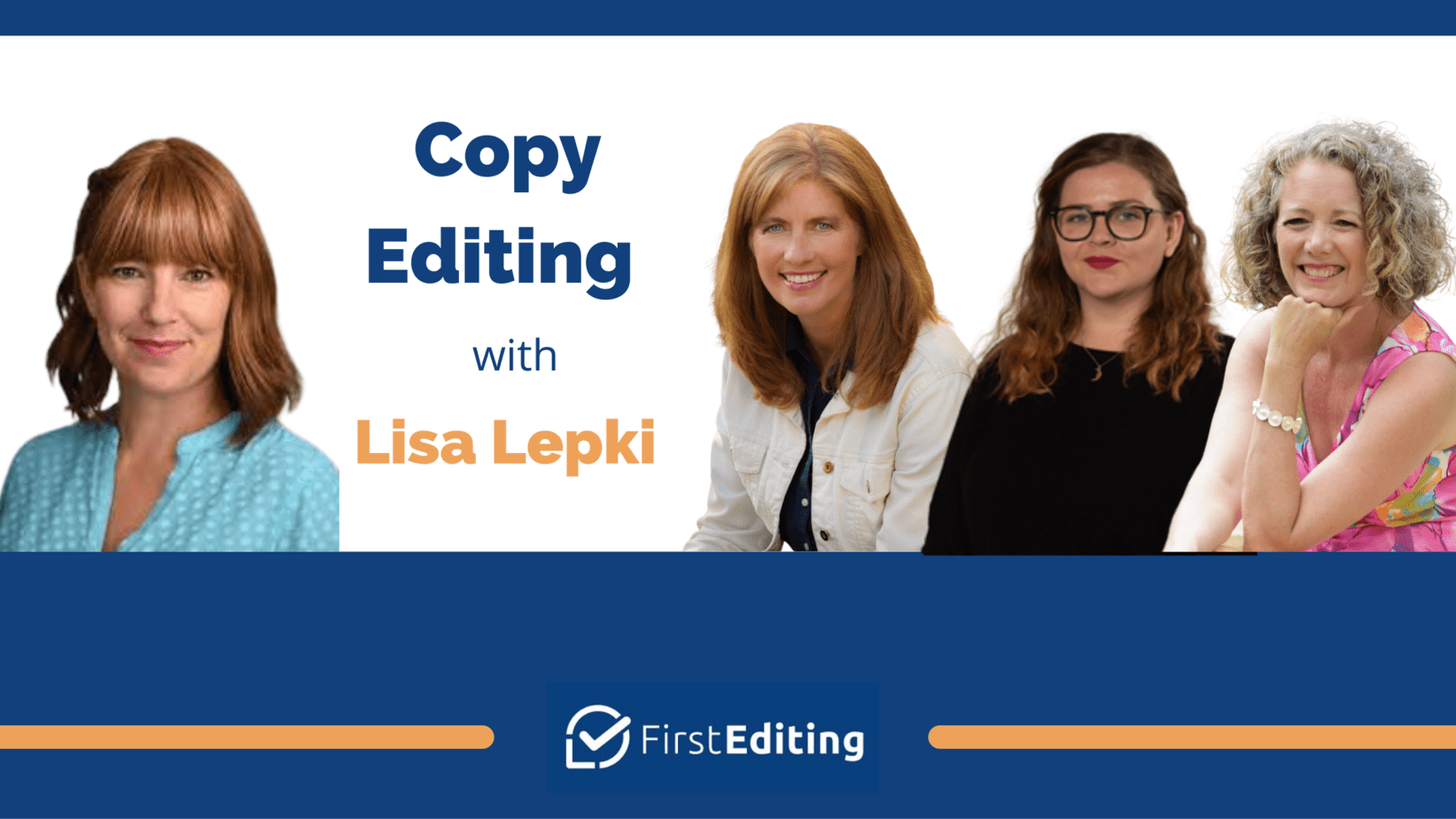One of the most difficult parts of becoming a writer is copy editing. But now, it is made easier and efficient with the help of a writing tool.
In this episode, Lisa from ProWritingAid joins JoEllen as they continue with this quartet interview together with Kristina and Tara as she shares the importance of copy editing and how it should be done with the ProWritingAid tool.
What is ProWritingAid?
ProwritingAid, as we all know, it’s the only platform that offers world-class grammar and style. It’s a checking that’s combined with in-depth reports and to help you strengthen your writing. We use it here at first editing, we love it. And what was really fun is you had a bunch of combinations of suggestions, articles, videos, and quizzes. So they try to make editing fun for those of you who may not find it so fun like the rest of us.
How do ProWritingAid tools make the writing process easier?
The thing that I most love about Prowriting aid is that it takes what can be a really huge daunting task and breaks it into a sort of smaller pieces. And so you know, you could edit an entire book by yourself and lots of people always have done. But there’s a lot of books that never get through that process because it’s so big, and it’s so scary, and people don’t really know where to begin. So I think I mean for myself because I have a manuscript in my drawer that I wrote 15 years ago, I never did anything with it because I just didn’t know what to do with it back then. The thing that I find most appealing about pro writing aid is that it helps break it all down into bite-size pieces so that you can see that you’re making changes, you can see that it’s getting better, you can see that you’re making progress and getting closer and closer to something that’s either ready to send to an editor like JoEllen’s team or if you’re going to self publish, then it’s a good way to make sure that you’re self-publishing the highest quality writing that you can. So that’s what I love most.
What’s the most common copy editing issue? And how should a writer fix it once they know what that issue is?
You know the thing with writers is everyone has their own bad habits, and everyone has their own strengths. And so it’s hard to say that this is the most common issue. I mean, grammar issues and spelling issues are always seen a lot. But the most common report that people use in ProWritingAid is a style report because it helps you improve readability at a really technical level. And a lot of what the suggestions in their focus on are taking the noise out of your sentences is one of my favorite reports as well, which works in a similar way as a sticky sentence report. And it flags up those sentences that have tons of unnecessary words, and that are overly complicated and that your reader may have to stop and re-read again, to get your point, it’s not concise, you haven’t been really clear, you have maybe wobbled around a little bit before you got to your point. And I think those are, those are the ones that make the biggest difference to writers because they’re cumulative, one sentence where instead of saying, he began to drive away, you say, he drove away. And, you know, everyone knows that if he drove away, he started to drive away, everybody began to drive away. And so those extra words are just noise, right? They’re not necessary. And so that’s one little thing. But once you do that 1000 times over the course of your book, that all adds up to just a much more readable book. And I think those are the ones that people really love, and that are easy, quick fixes, and that makes the biggest difference.
When you’re assessing the needs and your concerns as a writer, how do you use those reports, best for sharing your concerns with the professional editor?
I think that the one thing that Prowriting aid does really well in that we’re really trying to expand is having a lot of learning in the app itself. And I think Fictionary does this as well. And so if you’re a writer, and you’re working with an editor if you have a shared vocabulary, and you understand what they’re saying when they say you’ve got too much passive voice, or you’ve got sticky sentences, or whatever it is, if you have a shared vocabulary, and you understand those basic writing techniques, then that relationship is just going to go more smoothly. So it’s really important to integrate these and the tools, especially having a report, it’s so much easier because you start to get a sense, but sometimes you still don’t know what your problem is, you know, you’re not right. It’s like when you’re in another language. And sometimes it’s just that way, you just, you know, it’s not right, but you don’t know how to make it. You know, you don’t know what’s wrong, you don’t know what’s right, you know what’s not right, but you don’t know what’s wrong. And so having a report that you can refer to really helps in the same way, when we, you know, we use that again and again. So it’s very important to do all this before you start the self-publishing, you send it off to Kobo and that. It’s very helpful to have that artificial intelligence or that little intelligent assistant sitting there and talking to you again and again, again, and telling you what you need. And over the last year, we’ve really tried to add as much learning as possible into the tool.
So for example, if you’re flagged for not having much in the way of sentence variety, I mean, a lot. If you’re a new writer, you may not understand why that’s important. So what we’ve got are articles and videos and all kinds of things in there talking about how good sentence variety is more engaging, rather than having just every sentence with 10 words can become really tedious. And so those sorts, those are things that you will learn and there’s, you know, hundreds of them throughout the tool as you go along. And so your skills will grow, and your ability to talk to your editor from a place of knowledge will improve as you go along.


















